Pacific Security Snapshot | 18 August 2023
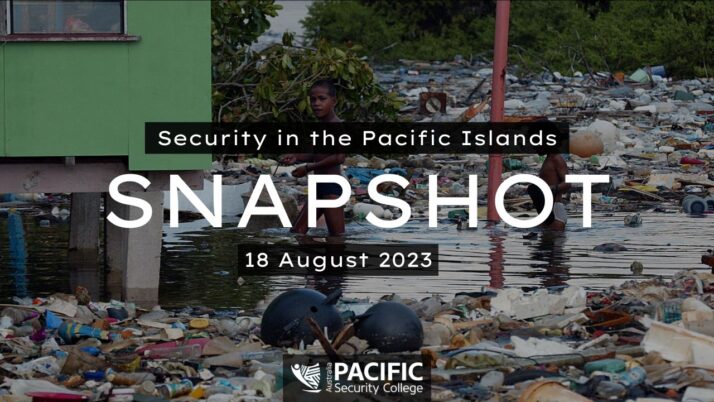
The security stories shaping the region
- ➣ Pacific Resilience Facility endorsed at the Forum Economic Ministers Meeting
- ➣ The Pacific Climate Security Assessment Guide
- ➣ French President Macron visits Papua New Guinea and Vanuatu
- ➣ US Secretary of State and Secretary of Defence in the Pacific
- ➣ Bougainville eruption leaves 8,000 displaced
Climate Security
Ministers from across the Pacific travelled to Suva this month to attend the 2023 Forum Economic Ministers Meeting (FEMM). Under the theme Our Pacific Way – Prosperity for All, a key outcome of the Pacific Islands Forum (PIF) meeting is the approved implementation of the redesigned Pacific Resilience Facility. The facility is intended to be a donor fund that Pacific countries can access for climate adaptation and resilience measures. The facility’s regional focus is important due to the difficulty experienced by Pacific countries in accessing climate finance from global mechanisms such as the Green Climate Fund, as well as the increasing debt burden faced throughout the region.
Australia and the United States (US) have each made commitments of around US$2million to the facility, which has a total funding goal of US$1.5billion. Forum Chair and Cook Islands Prime Minister Mark Brown spoke to the value of actors such as the World Bank assuring donors of their support for the facility as a credible “means of getting resources to those countries that need [it].” The facility proposal will be taken to the 52nd PIF Leaders Meeting in Rarotonga in November this year.
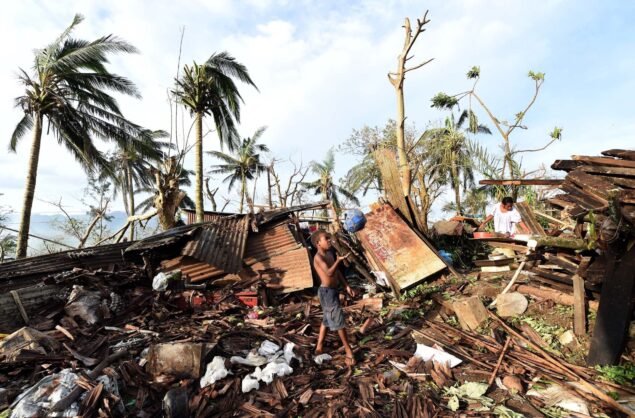
A young boy kicking a ball as his father searches through the ruins of their family home in Port Vila after Cyclone Pam ripped through Vanuatu in 2015. Photo: Dave Hunt/ AFP
In further Forum news, the Pacific Climate Security Assessment Guide has been released. The guide forms part of the Boe Declaration Action Plan and provides Pacific nations with the knowledge and tools to navigate climate change challenges, safeguard the well-being of citizens and strengthen resilience.
The guide strives to challenge traditional security framings by explaining five ‘pathways’ for how climate change contributes to regional insecurity. The climate security pathways are: challenges to livelihoods and the blue economy; pressures on food, water and health security due to threatened land availability and usability; exacerbated exposure to disasters and eroding resilience of vulnerable groups and governments; climate change-induced mobility trends; and questions over maritime boundaries and sovereignty.
The guide acknowledges the influence of geopolitical competition on the region’s ability to respond to the climate security threat. It highlights the potential for Pacific nations to benefit as actors in the region bring more external resources to combat climate change, whilst cautioning that Pacific interests may be “compromised” and “compounding pressures on PICTs will make cooperation more challenging.”
[Media Release]
New Pacific Climate Security Assessment Guide will put Boe Declaration into Action and marks a significant milestone in the #Pacific region’s ongoing efforts to address the challenges posed by #climatechange.
Read release: https://t.co/UqOQnIDnhS pic.twitter.com/zS4EqAUK35
— Pacific Islands Forum (@ForumSEC) July 26, 2023
Geopolitics
In July, French President Emanuelle Macron travelled to Papua New Guinea (PNG) and Vanuatu, marking the first time a sitting French President has travelled to independent states in the Pacific. President Macron’s office is emphasising that France offers the region a “third way” on issues such as climate change and deforestation. Commitments made by President Macron to the region include a new embassy in Samoa, the resolution of land issues in the South of Vanuatu and funding towards the Forests, Climate Change, and Biodiversity intervention programme in PNG.
US Secretary of State Antony Blinken travelled to Tonga and Secretary of Defence Lloyd Austin visited PNG. Secretary of State Blinken used his speech at the US embassy in Nuku’alofa to draw attention to what the US perceives as China’s “increasingly problematic behaviour.” Secretary of State Blinken touched on issues including illegal fishing, climate change and development, saying “We really understand what is a priority for the people here.”
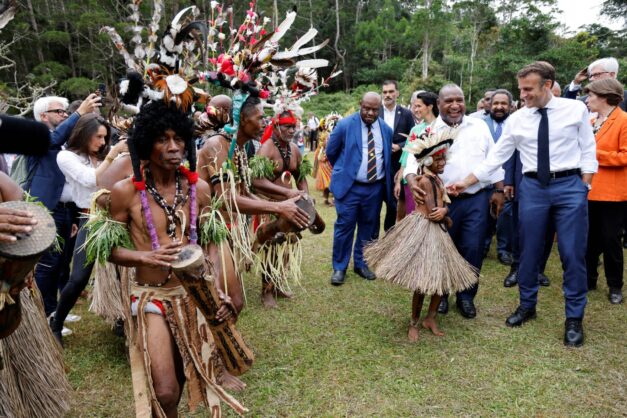
PNG Prime Minister James Marape and French President Emmanuel Macron visit Varirata national park forest in Port Moresby. Photo: Ludovic Marin / AFP
Human Security
Bougainville has extended the state of emergency put in place following the eruption of Mount Bagana last month. More than 8,000 people are displaced, whilst vegetation and food gardens have been destroyed and water sources contaminated by ash. The volcanic activity began without warning, as Mount Bagana has not been monitored since 2015. Assistant Director of the Rabual Volcanological Observatory (RVO) Ima Itikarai has attributed the absence of instrumental monitoring to the limited mobile communication and 4G network infrastructure in the region. Humanitarian assistance has been provided by the defence forces of the US, New Zealand, Australia and PNG.
More Stories
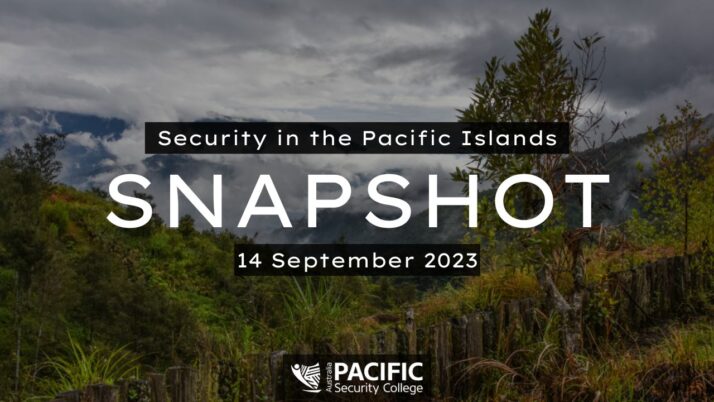
Security Snapshot - 15 Sep 2023
Pacific Security Snapshot | 15 September 2023
The security stories shaping the region ➣ Pacific Islands Forum Women Leaders Meeting ➣ Pacific High-Level Dialogue on Climate Change ➣ Fiji to sign Status of Forces Agreement with France ➣ Palau expands United States maritime law enforcement agreement ➣ Papua New Guinea special elite force to combat tribal violence ➣ Australia extends police presence…
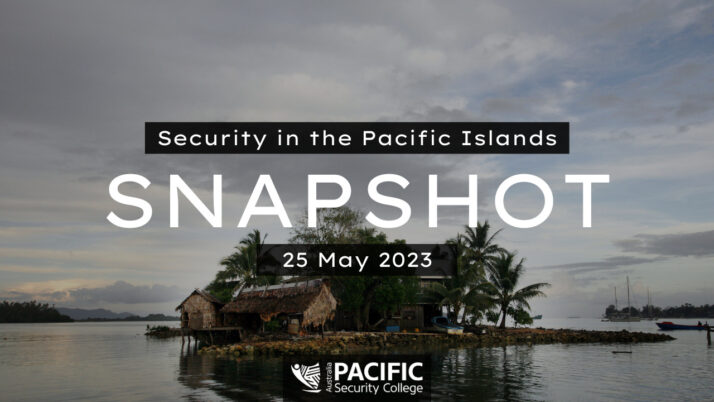
Security Snapshot - 26 May 2023
Pacific Security Snapshot | 25 May 2023
The security stories shaping the region ➣ Papua New Guinea and the United States sign Defence Cooperation Agreement ➣ United States-Pacific Islands Forum Dialogue held in Port Moresby ➣ Pacific leaders meet Indian Prime Minister Narendra Modi ➣ Pacific call for climate finance breakthrough at UN session ➣ Tuvalu strengthens efforts against illegal, unreported and…






